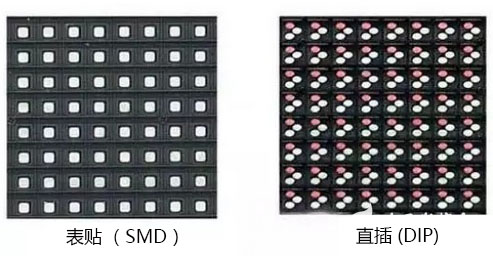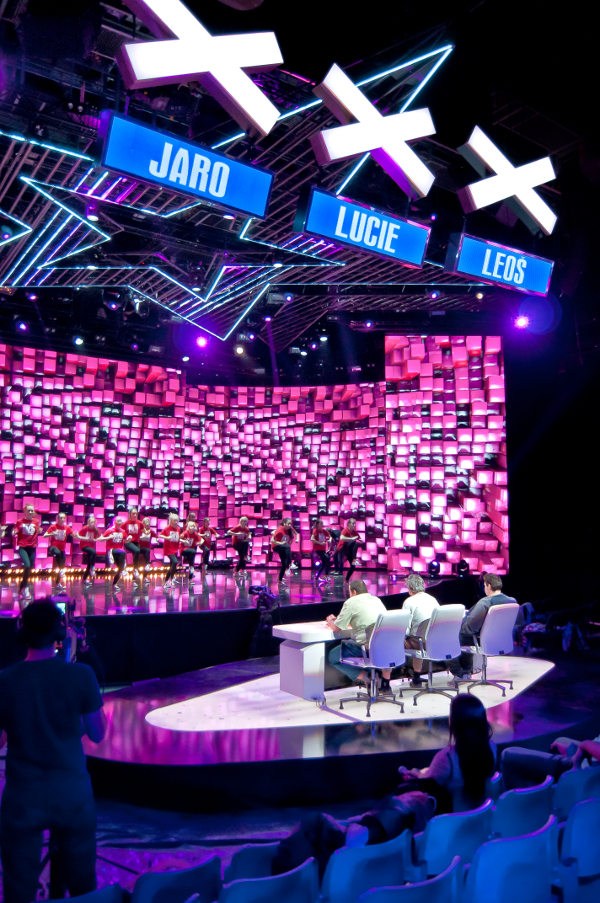When designing the led screen, the stage rental LED display must consider three important factors: display content, site space conditions, display size, or pixel size. At the same time, it is necessary to ensure that the production process, technical indicators, etc. are suitable for indoor practical application needs, and then combine the project. Cost, reasonable design.
1 LED display pixel pitch
The visual graininess mainly comes from the human eye with a certain degree of resolution. Watching two points at a certain distance, when the two points are close to a certain degree, the human eye cannot distinguish. In the past two years, with the improvement of LED display manufacturing technology, the resolution of small-pitch LED display screens has been continuously improved. The indoor display design has been upgraded from the initial selection of the smallest point distance specification program to the selection of the appropriate point distance specification.
The typical LED display screens of Priva led. P1.6, P1.9, P2.5, P3.9 and P4.8 are indoor specifications. "P2.5" indicates that the pixel pitch is2.5mm. The minimum line-of-sight is the distance between the pixels and the pixels cannot be distinguished by the human eye. However, viewing the distance for a long time will damage the eyesight. The best viewing distance is the comfortable distance to watch the screen and the clearest distance.
It can be seen from the comparison in Table 1, P1.27, P1.54, P1.6, P1.9, P2.5 four specifications, the minimum line of sight and the best line of sight is very close to the viewing requirements of large flat-panel TVs, the entire screen With a resolution of up to 4800×2400, a clearer picture can be displayed on the same screen, but displaying a high-definition signal on a 12m wide screen requires magnified 3 to 4 times, showing that two high-definition pictures need to be enlarged by a factor of 2; The resolution display requires high-performance image processing equipment, and the overall cost of the system will be high. Both the P4 and P4.8 specifications cannot display two high-definition screens on a 12m wide screen at the same time, which does not meet the requirements for high-definition conferencing TV screen display. P3 can meet the requirement of displaying two HD pictures at the same time. According to the size of the display screen, the P3 with a higher price/performance ratio is selected as the display point distance between the main screen and the sub screen of the project, and P4 is selected as the display point distance of the logo screen.
2 Encapsulation Technology
One of the factors that determine the quality of LED is the main material, such as chip, bracket, glue (epoxy resin), gold wire, etc. Another factor is the encapsulation or packaging process. The LED encapsulation technology is related to the display saturation, viewing angle and other display effects, production cost, and quality stability of the entire display screen, and is one of the key indicators for selecting the LED display screen.
Indoor LED mainstream packaging technology is mainly surface-mount SMD, in-line DIP mode. Surface mounting refers to affixing a packaged LED to a circuit board and then processing the integrated circuit into a screen body. It has good heat dissipation and uniform color. The entire display screen can be maintained positively, which greatly reduces the maintenance cost and difficulty. At the same time, metal compounds are filled in the packaging process, resulting in a good color mixing effect and soft light emission, which is more suitable for indoor applications. The DIP module encapsulates the LED tube into a square shape, and then puts together 3 red, green and blue LEDs to form a pixel module. It is directly mounted on the PCB board and soldered. The process is relatively simple, the cost is low, and the bad point rate is high. Mainly used in outdoor display.

The pixel structure of the indoor screen is surface-mounted three-in-one and surface-attached three-in-one (separate surface-mount).
Three-in-one surface-mounting means that red, green and blue light emitting dots are encapsulated and synthesized in the same light emitting tube, which is close to the point of view. Zooming in is a line where three light emitting points are separated, which has high requirements for materials and processes in the production process. It is mainly used for the production of small-pitch, high-density high-end LED display screens.
The “three-in-one” surface mount (separate surface mount) means that the three red, green, and blue light emitting points are separately packaged and arranged into one pixel after packaging, and then one mask is packaged to protect against dust, scratches, and protection. Light emitting wafers. The third and the first is to separate the surface and the power supply at the three points, and the power consumption is small, and the maintenance of the single lamp can be realized with a low cost.
In general, in order to enhance the display effect of indoor screens, surface mount three-in-one, black light technology, and gold wire package are used.

3 LED control circuit design
The LED control part is the core part that determines the display effect. The control circuit has a built-in high-performance single-chip micro control chip. The controller sends the control signal and data to the LED driver chip through an internal control program. After the LED driver chip receives the signal, it generates a corresponding action, so as to individually control each of the red, green, and blue LED light emitting chips.
3.1 Drive System
The function of the LED driving part is to receive the color data and drive the LED display screen to display the brightness value represented by the data. There are usually three methods of constant current, voltage regulation, and constant voltage-constant current.
Constant current drive circuit output current is constant, the output DC voltage changes with the load resistance changes, the entire circuit is not afraid of load short circuit, but the load is strictly prohibited open circuit. The voltage regulator circuit outputs a fixed voltage, and the output current changes with the increase or decrease of the load. The entire circuit is not afraid of the open load, but the load is strictly prohibited. Constant voltage and then constant current mode is the most ideal drive circuit, not only to detect the LED current, but also control the LED voltage, help to improve the LED life, reduce power consumption, generally used in high-grade LED products.
3.2 Control System
The display effect of the LED depends on the magnitude and time of the current and voltage passing through it, so the control system mainly controls the power output of the LED. At present, the LED power supply designed by the PWM (pulse modulation) control method has a conversion efficiency as high as 80% to 90%, and the output voltage or current is very stable, which is a highly reliable power supply.
The PWM can control the proportion of time the LED is turned on and off. By dividing the time ratio into several levels, the LED displays a corresponding number of gray levels (gray scale). The product of the gray levels of the three primary colors is the number of colors theoretically reproducible on the display screen, generally 256 levels, and the number of colors reaches 16.7 M, which can display 24-bit true color information.
The frequency of general PWM is greater than 100Hz, otherwise there will be flickering and scan lines displayed when watching. At present, the large screen with a gray scale of 10 bits has a refresh frequency of 800 to 1000 Hz, and the LED industry has the highest refresh rate of 6800 Hz. Under the normal viewing and rotation of the camera, the LED screen display is stable and flicker-free, and the grayscale is smooth and smooth at the highest refresh rate without cross-coloring.
?
3.3 Combination of Drive System and Control System
LED as the load of the circuit, and the circuit connection of the drive system and the control system are related to the stability of the entire display screen. Generally, there are three ways of series connection, parallel connection and mixed connection. The series connection mode is a connection mode with low reliability, and is often used in low-end products. In a regulated drive circuit, when a certain LED is short-circuited, the voltage distributed to other LEDs will increase, which will cause more damage.
The parallel connection method is applicable to a product with a low power supply voltage. In a constant current driving circuit, when one of the LEDs is turned off, the current distributed to other LEDs increases, and it is easy to damage all the LEDs on the circuit.
At present, in order to improve the reliability of the product, a hybrid connection method is generally adopted. The number of serially and parallelly connected LEDs is evenly distributed and grouped in parallel, and then each group is connected in series so that the voltages assigned to one string of LEDs are the same through each LED. The current is basically the same, the LED brightness is consistent, and it is better to increase the LED temperature negative feedback in the constant current output to prevent the LED temperature from being too high.
The entire display screen is made up of a plurality of module units. To ensure the reliability of power supply and data, a hybrid connection method must also be adopted to realize the loop backup function. When an abnormal power supply fault occurs on one of the power supplies, other power supplies will automatically perform intelligence. The current sharing does not affect the normal use of the system, and effectively improves the system's trouble-free operation time and reduces the time for fault maintenance.
4 special requirements for the stage camera on the screen
Although the high refresh rate ensures that large screens can respond in a timely manner even when shooting with a high-speed camera, and the screen transitions and transitions are smoother and smoother, they will occasionally appear when the camera lens is aligned with the LED display. Inexplicable wave-like streak and strange colors, and with the change of the shooting angle, camera lens focal length adjustment, water ripples will also have some changes, very much affect the live and recorded display, this is the digital television bring Moire phenomenon.
If the spatial frequency of the photosensitive element CCD (or CMOS) pixel is close to the spatial frequency of the (LED) stripe in the image, moiré will occur. Since the moiré phenomenon is caused by the inherent structure of the LED display, if one of the conditions that causes the moire to occur is the disappearance of the grid structure of the LED display or the camera structure of the camera CCD (CMOS), theoretically Moire interference can be completely eliminated. Domestic companies superimpose a layer of optical processing screen on the surface of the LED display screen. The screen is composed of a special proportion of special light-absorbing material and a surface bead lens coating. Through the use of an optical screen, the LED screen is transformed from the original grid-like light emission. Continuous surface emission, through the amplification and display of discrete LED pixels, finally forms a continuous high-definition image on the surface of the optical processing screen. While improving the contrast, it retains high definition and eliminates the moiré phenomenon.




